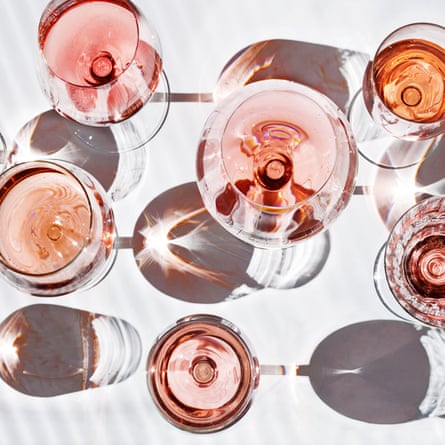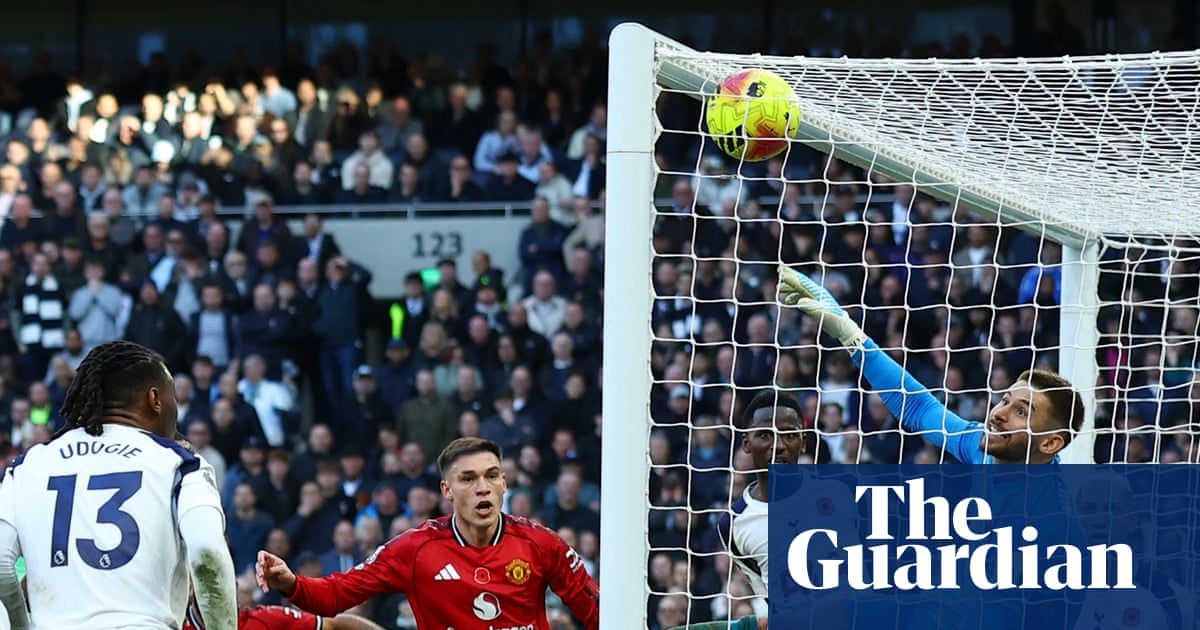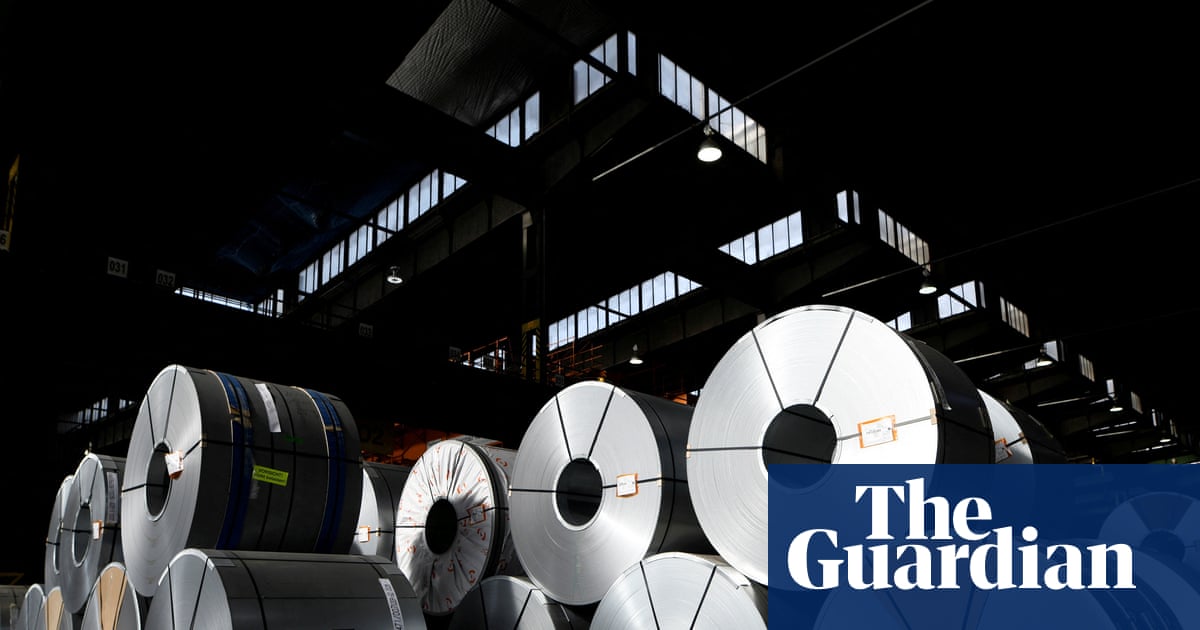Are you a zebra-striper, alternating your alcoholic drinks with non-alcoholic versions to moderate your intake? Or are you booze-free? As curbing drinking becomes more popular, it’s clear that this moment of sober curiosity is moving beyond Dry January and into the everyday.
Luckily, the drinks industry is scratching our sobriety itch with a bevy of good alcohol-free products. If you’re ready to wet your whistle with something delicious that won’t have you stumbling into the next day with a sore head, read on to discover the best no- and low-alcohol whites, reds and rosés from my taste testing, perfect for any time, any place.
The best non-alcoholic and low-alcohol wines

No- and low-alcohol white wines
Moderato Colombard Cuvée Révolutionnaire, 0.5%

£12.99 at Wise Bartender
£14 at Majestic (£12 as part of Mix Six package)
Born from French winemaking heritage, this alcohol-free white is one of the few that could truly be mistaken for the real thing. The Colombard grape is typically high in acidity, with fresh floral aromas and notes of lemon, grapefruit and peach, and its flavours stay on the tongue well after the last sip. Moderato’s founders, Sébastien Layé and Fabien Dessens, are pioneers in the alcohol-free wine movement in France, establishing Le Chai Sobre, (The Sober Cellar), the country’s leading production centre for alcohol-free wine.
Thomson & Scott Noughty Non-Alcoholic Blanc, <0.5%

£10.50 at Ocado
£10.95 at Abel & Cole
Noughty is a premium, organic, non-alcoholic wine brand that has raised the bar for what alcohol-free wine can achieve. For about £10, its white, with less than 0.5% ABV (about as much as a ripe banana), is great value for money. Made from chardonnay and chenin blanc in South Africa, this is a fresh, crisp wine with an authentic wine-like texture. It’s dry, too, so it won’t be mistaken for fruit juice, unlike some other alcohol-free offerings.
Bolle Chardonnay, <0.5%

£15.99 at Bolle Drinks
£15.99 at Amazon
Bolle has already taken the non-alcoholic sparkling wine world by storm, and booze-free imbibers love it for its fine bubbles and authentic taste and texture. This is the first non-alcoholic still wine in its range: made mainly from the chardonnay grape, with a bit of the Germanic variety Silvaner added in. It’s crafted as a wine and then de-alcoholised. No sugar, flavours or aromas are added, so you get real chardonnay notes of apricot, lemon and apple, alongside a silky mouthfeel and bright acidity. The traditional chardonnay bottle looks the part, too. Very smart.
Brown Brothers Moscato Zero 2023, 0.5%

£9.95 at the Fine Wine Company
£9.75 at Bakers & Larners
Based in Milawa, Victoria, Brown Brothers is one of Australia’s leading family-owned wine companies. Its Moscato Zero is a “vintage” bottle, with all the grapes from one year, and is on the sweet side with a gentle spritz. The muscat grape, which makes moscato wines, is one of the only varieties that still tastes “grapey” once it’s made into a wine – making it the perfect accompaniment to dessert or a cheeseboard.
Torres Natureo, 0.0%

When one of the biggest wineries in the world gets on board with alcohol-free wine, it’s definitely worth a look. As with Brown Brothers, Torres has chosen muscat grapes for its white Natureo, delivering a semi-dry wine. From the Penedès region of Spain, Catalonia’s famed wine-growing area, all of the grapes are from a single year. This floral wine is fresh and smooth on the palate, with notes of golden apple, pear and orange blossom, which pair beautifully with a seafood paella.
Schloss Wachenheim AG ‘Eisberg Selection’ Pinot Grigio, 0.0%

£8 at Majestic (£7 as part of Mix Six package)
£8.99 at Wise Bartender
Pinot Grigio is one of the most popular white wines in the UK. Established in the Pfalz region of Germany more than 100 years ago, this winery considers itself a boundary-pusher in regular winemaking – and now a global pioneer in alcohol-free wines, too. This de-alcoholised pinot grigio is actually more expressive than many alcoholic versions, with notes of lemon, lime and juicy white peach. It has a subtle spritz, but is dry and zesty, too.
No- and low-alcohol rosé wines
Wednesday’s Domaine Elan, 0.0%

This bottle looks the part, and the pale pink wine has summery aromas of watermelon and strawberries. On the dry side, it has mouthwatering acidity, lots of juicy berry fruit flavours, and even a slight creaminess to the texture. This rosé from Wednesday’s Domaine has got to be one of the most convincing still pinks out there. It’s simply delicious.
Thomson & Scott Noughty Non-Alcoholic Rosé, 0.5%

£9.99 at Waitrose
£10.80 at Friarwood
Made in South Africa from two of the country’s signature grapes, chenin blanc and pinotage, this is an elegant, dry, salmon-hued rosé with less than 0.5% alcohol. It’s clean and crisp on the palate, which may be because it has almost half the amount of sugar found in most other non-alcoholic wines. Subtle summer berry and citrus flavours give it a more grown-up taste than other alcohol-free offerings out there. Take it to a dinner party to impress.
M&S Alcohol Free Rosé, 0.0%

People often complain that alcohol-free wines are too expensive, but that can’t be said for M&S’s 0.0% rosé at £4. It might not have the provenance of pricier bottles that are made from hand-picked organic grapes in a well-established family-run vineyard, but if you’re after something cheap and cheerful, it hits the right notes. Strawberry-pink in colour, it’s bursting with flavours of ripened berries and juicy stone fruits. Its sweeter finish may not be great paired with your gourmet tasting menu, but for drinks in the garden, bring it on.
Torres Viña Sol Rosé, 0.0%

£5 at Waitrose
£7.50 at Morrisons
Another from Torres, this time to stand in for one of the most popular rosé wines on shop shelves: the Viña Sol Rosé. It looks the same, and although it doesn’t taste exactly the same – being quite a bit sweeter – it’s not a bad substitute. You still get the freshness, the summer fruit flavours and the dry edge, to assure you that it isn’t fruit juice. One for a party where you want to blend in – just be careful not to get the bottles mixed up.
No- and low-alcohol red wines
Tread Softly Everything Except Pinot Noir, <0.5%

Having had huge success with its 9% ABV rosé, Tread Softly has now launched its Everything Except zero-alcohol range. The pinot noir in this is the runaway favourite with bags of bright berry fruit flavour, fresh acidity and soft tannins, which provide a distinct wine-like texture. Tread Softly uses a high-vacuum, low-pressure and lower-energy distillation method that it claims is a gentle way of removing the alcohol while trying to retain the full flavour of the grapes.
Oddbird Domaine De La Prade Merlot, <0.5%

£10 at Drinkmonger
£10.06 at Amazon
Founded by a former family therapist and social worker, Oddbird is passionate about alcohol-free living. The bottles are smart and the liquid inside is made from high-quality grapes from renowned vineyards. The alcohol has been removed without adding artificial flavours, colours or other substances along the way. This merlot is modern and youthful with fruity blackberry and plum notes. It has 12 months of maturation, however, which gives it more depth and complexity than other contenders in this category.
Zeno Red, ~0.5%

£7.68 at Waitrose
£10.99 at Wise Bartender
This red seems to have impressed the upper echelons of the wine trade as it regularly comes out top for recommendations. The reason is its impression of complexity: bright, juicy berry fruit aromas layer with spice and savouriness beneath, all wrapped up in a silky mouthfeel with a hint of tannic grip. The grapes are tempranillo and cabernet sauvignon, and since it’s Spanish-made enjoy it with chorizo and charred padrón peppers.
Moderato Merlot-Tannat Cuvée Révolutionnaire, 0.5%

£12.99 at Wise Bartender
£14 at Majestic (£12 as part of Mix Six package)
The colour is a pleasingly deep shade of ruby thanks to the tannat grape, with its thick, dark skin, while the hint of oak and dried herbs on the nose transports me straight to Gascony, where it’s made. Taste-wise, it’s dry with some concentration of fruit, a tickle of spice and gentle tannins. For a medium-bodied wine, this is nearly there. With a Toulouse sausage casserole and a dash of sober joie de vivre, you could have a merry time with this.
Thomson & Scott Noughty Rouge, <0.5%

£10.50 at Waitrose
£10.50 at Ocado
Light regular wines aren’t of a lesser quality than heavy, and the same applies to non-alcoholic wines. The Noughty Rouge reminds me of a good bistro wine: it’s one to have with a casual lunch, around a table with friends. That being said, it’s far from juvenile, with an accomplished balance of ripe fruit, fresh acidity and soft French oak tannins.
Brown Brothers Cienna Zero, 0.5%

£9.18 at Strictly Wine
£9.95 at Harris & Co
It’s sweet and a bit fizzy – so if that’s your thing, read on. Made from cienna grapes grown in the hot and arid Murray valley of north-west Victoria, this is a summertime fruit bomb kind of red that would be perfect for a July barbecue. The acidity keeps it nice and fresh, balancing out the sweet, ripe fruit. Stick it in the fridge, throw another shrimp on the barbie, and turn up the tunes.
No- and low-alcohol sparkling white wines
Wild Idol Alcohol Free Sparkling White, 0.0%

The Germanic grape variety müller-thurgau is used to make the Wild Idol white, which naturally produces floral aromatics and a sweet green apple flavour, with a crisp acidity. These characteristics are what you want in a sparkling wine, too, and Wild Idol says it’s able to preserve them because the juice is minimally handled and never fermented to produce alcohol. I don’t know how, then, it manages to taste “winey” but it does – and many top dining spots, such as Nobu and Jason Atherton restaurants, are choosing to pair it with their dishes.
Bolle Blanc de Blancs, 0.5%

£19.99 at Drink Supermarket
£24.99 at Amazon
Bolle goes through a secondary fermentation like champagne and prosecco, in order to capture the authentic character of real, high-quality sparkling wine. The effect is an elegant, fine-bubbled fizz with layers of flavour, from vibrant citrus notes to something more honeyed and toasty. Having scooped up a bevy of awards, it seems to be the one on everyone’s lips at the moment.
Domaine de L’Arjolle Zero, 0.0%

With their rich wine culture, French drinkers might be more resistant to non-alcoholic wines. However, Domaine de l’Arjolle, which makes the Zéro Sparkling Equilibre, is gaining a following in France for its alcohol-free offerings. This 0% bubbly expresses its grape varieties, sauvignon blanc and viognier, well with zesty and floral aromatics, and zingy citrus and stone fruit flavours. Clean and crisp, those tiny bubbles hit the roof of your mouth in exactly the way you’d expect from a fine French fizz.
Thomson & Scott Noughty Dealcoholized Sparkling Chardonnay, 0.0%

£9.50 at Sainsbury’s
£10 at Waitrose Cellar
A common complaint about alcohol-free sparkling wine is that it’s too sweet. Well, this one definitely is not. If you like your wine dry, with zesty citrus characteristics and some granny smith apple crunch, then this could be the one for you. Noughty is a reliable zero-alcohol brand that ticks all the right boxes: it’s organic, vegan, gluten-free, low-sugar, low-calorie and low-sulphite. Great value for about a tenner.
La Gioiosa Sparkling Alcohol Free, 0.0%

£4.50 at Morrisons
£6.75 at Ocado
Prosecco is known for being one of life’s simple pleasures: it’s fruity, refreshing and uncomplicated. The same goes for La Gioiosa’s affordable alcohol-free version. It’s made in the land of prosecco, Treviso, from the juice of the same glera grapes, and then carbonated. It doesn’t taste exactly like an extra brut prosecco – it’s a bit sweeter – but you’ll still find those bright notes of pear, apple, peach and white blossom in the glass, and the pop is just like the real thing.
No- and low-alcohol sparkling rosé wines
Oddbird Alcohol-Free Sparkling Rosé, 0.5%

£10.99 at Laithwaites
£9.49 at Amazon
A good wine is about balance. If there’s sweetness, it should be balanced with acidity so that it isn’t cloying. This sparkling rosé is a great example. The syrah grape, grown in the Languedoc-Roussillon region of France, brings juicy summer berry flavours, which are lifted by mouth-puckering citrus notes and a poised, dry edge. Fine bubbles help to create a creamy texture, which is brightened by a clean, fresh finish.
French Bloom Le Rosé, 0.0%

If you’re a champagne fan on a champagne budget, this is your booze-free bubbly. If you’re specifically a Taittinger fan, then this will seal the deal. The Frerejean-Taittinger family is behind French Bloom, a premium alcohol-free wine brand, making de-alcoholised sparkling wines with organic chardonnay and pinot noir grapes. For me, the rosé version has the edge over the white because it’s a little drier and has a touch more complexity – perhaps due to the addition of pinot noir. Either way, the tiny bubbles effortlessly imitate the elegance of champagne, and it’s all wrapped up in very pretty packaging.
Wild Life Botanicals Blush, 0.5%

£13.49 at The Alcohol Free Co
£16 at Wild Life Botanicals
The difference with Wild Life is that it’s not trying to be a wine. Even though it is a de-alcoholised wine, the focus is on its mix of botanicals that almost makes it a celebratory health drink. Among its “famous five” is lemon balm, which is good for digestive health, damask rose, which can soothe inflammation, and damiana, a mood-lifting aphrodisiac. Putting the plant power to one side, the blush is a frivolously delicious tipple that tastes of rhubarb, wild strawberries and crab apples.
Kylie Minogue Alcohol Free Sparkling Rosé, 0.0%

£6 at Morrisons
£6.50 at Amazon
Kylie’s wine empire is growing by the year, with her brand seeming to have struck a nimble balance between inviting, affordable, aspirational and inclusive. Her alcohol-free sparkling rosé brings another crowd of fans on board and, as long as they’re not expecting Laurent-Perrier levels of fizzy pink stuff, there’s a lot to like. It’s sweet without being overly sugary and vibrant without being brash. A little like Kylie herself.
No- and low-alcohol sparkling teas
LA Brewery Sparkling English Blush Kombucha, 0.0%

£10 at Ocado
£13 at LA Brewery
If the alcohol-free sparkling wines haven’t quite hit the heights you’d hoped for, perhaps sparkling kombucha will get you there. People love the tang and texture of kombucha, which encourages sipping rather than gulping, as you might do with a can of soda. LA Brewery’s sparkling kombuchas are made in a B Corp-certified microbrewery in Suffolk, and are infused with blends of fruits, flowers and botanicals to enhance aromatics, mouthfeel and depth of flavour. Expect aromas of sharp rhubarb and heady elderflower to greet you when you pop the cork.
Real Peony Blush Non-Alcoholic Sparkling Tea, 0.0%

£11.50 at Waitrose
£11.50 at Ocado
These sparkling teas are crowd-pleasers. Made with White Peony tea, this particular blush is light and floral, with natural summer berry flavours that don’t leave your mouth feeling like you’ve just sucked a fruit pastille. If you want to see how they’re made, you can visit Real’s Fermentery at the Waddesdon Estate in Buckinghamshire.
Copenhagen Organic Sparkling Tea BLÅ, 0.0%

£18.45 at Fenwick
£18.50 at Fortnum & Mason
The lovely thing about sparkling teas is that you get a complexity of flavours and aromatics coming naturally from the tea blend. Blå is made with 13 jasmine, white and darjeeling blends, which all bring their nuanced characteristics to the glass. Tea also contains tannins, so a wine-like structure is already in place, helping it to pair with a multitude of foods. This sparkling tea has been developed by Copenhagen-based, award-winning sommelier Jacob Kocemba.
How is alcohol removed from wine?
Alcohol is removed using different methods, such as spinning cone technology or vacuum evaporation, or in some cases, alcohol might not have been created in the wine at all. All have their pros and cons, affecting the taste and texture of the drinks, as well as their impact on the environment.
High-vacuum, low-pressure distillation is considered the gentler method, as it allows for the separation of compounds at lower temperatures. This is more eco-friendly, plus it preserves the aromas and flavours better because heat is more likely to damage delicate compounds. Wines using the vacuum method tend to have more naturally occurring “winey” characteristics, whereas spinning cone wines may lack aromatics. This could lead to more additives being thrown in the mix, which might result in the wines tasting more artificial. Alcohol-free wines that don’t go through fermentation do taste fruitier and more “grapey”, with some tasting overly sweet.
You might have to do a little digging to find out which production method has been used for your choice of non-alcoholic wine, as it’s not often stated on the bottle, but it will be on the producer’s website. All things to consider when you’re choosing your alcohol-free wines.
Most wines actually have up to 0.5% alcohol, but since even products such as bread, fruit juices, soft fruits and flavoured sparkling waters have up to this amount due to the natural fermentation process, that percentage doesn’t have to be announced on the bottle. And, in case you’re concerned, I can assure you that bread will not get you drunk.
Sophia Longhi is an award-winning wine communicator, wine writer and international wine judge. She is of a good vintage and is now ageing in Brighton. Follow her on Instagram at @skinandpulp

 3 months ago
97
3 months ago
97

















































